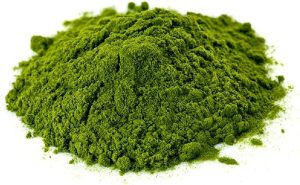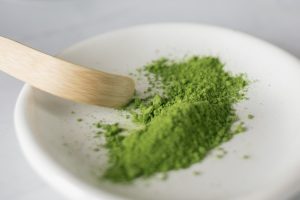
- Overview of Iodine
- Brief History of Iodine
- Functions of Iodine
- Recommended Daily Intake (RDI), Recommended Dietary Allowance (RDA), Adequate Intake (AI) or Reference Nutrient Intake (RNI) for Iodine
- Deficiency of Iodine
- Food Sources of Iodine and Where to Get It From
- Iodine and Its Interaction with Other Medications
- Websites and Articles to Delve into the Benefits of Iodine
- Disclaimer
Overview of Iodine
Iodine is an essential element crucial for the synthesis of thyroid hormones, which play a fundamental role in regulating metabolism and supporting overall growth and development.
While iodine deficiency can lead to thyroid disorders and developmental issues, excess iodine can also have adverse effects. Iodine is commonly administered as iodine-based medications or iodized salt to prevent deficiencies.
Radioactive iodine is used in medical treatments, particularly for thyroid disorders and certain cancers. Iodine contrasts, such as iodine-based dyes, are utilized in medical imaging procedures like CT scans.
Maintaining a balance in iodine intake is critical for optimal health, and healthcare professionals carefully prescribe iodine-containing medications or treatments based on individual health needs.
Brief History of Iodine
The history of iodine is marked by its discovery, recognition of its essential role in human health, and the implementation of public health measures to prevent iodine deficiency disorders. Here’s a brief overview:
- Discovery:
- Iodine was discovered in 1811 by the French chemist Bernard Courtois. Courtois extracted iodine from seaweed ash and recognized its unique properties. The name “iodine” is derived from the Greek word “iodes,” meaning violet, reflecting the element’s distinctive color.
- Iodine and Thyroid Health:
- In the early 20th century, researchers, particularly Swiss physician J.F. Schenk, observed a connection between iodine deficiency and goiter, an enlargement of the thyroid gland. This discovery laid the foundation for understanding iodine’s crucial role in the synthesis of thyroid hormones.
- Salt Iodization:
- To address widespread iodine deficiency, salt iodization programs were initiated in the early to mid-20th century. The addition of iodine to salt became a successful and cost-effective public health measure, significantly reducing the prevalence of iodine deficiency disorders worldwide.
- Global Efforts:
- Organizations like the World Health Organization (WHO) and UNICEF have played key roles in global initiatives to combat iodine deficiency. Universal salt iodization programs have been implemented in numerous countries to ensure a stable and sustainable iodine supply in diets.
- Medical Uses of Iodine:
- Iodine has various medical applications, including the use of iodine-based contrast agents in diagnostic imaging, radioiodine therapy for thyroid disorders and cancer, and topical antiseptic solutions containing iodine for wound care.
- Iodine in Diet and Nutrition:
- Today, iodine remains a critical element for human health, and its importance is emphasized in maintaining a balanced diet. Iodized salt and iodine-rich foods contribute to the prevention of iodine deficiency, particularly in regions where natural dietary iodine sources are limited.
| Discovery of Iodine | Iodine and Thyroid Health | Salt Iodization | Global Efforts | Medical Uses of Iodine | Iodine in Diet and Nutrition |
|---|---|---|---|---|---|
| Discovered in 1811 by B. Courtois | Connection between iodine deficiency and goiter observed by J.F. Schenk | Salt iodization programs initiated | WHO, UNICEF, and global initiatives combat iodine deficiency | Iodine-based contrast agents in diagnostic imaging | Iodized salt and iodine-rich foods prevent deficiency |
| Named “iodine” from Greek “iodes” | Iodine’s role in thyroid hormone synthesis recognized | Successful public health measure | Implementation of universal salt iodization programs | Radioiodine therapy for thyroid disorders and cancer | Important for maintaining a balanced diet |
| Element’s distinctive color is violet | Foundation laid for understanding iodine’s crucial role | Significantly reduces deficiency disorders worldwide | Ensures stable and sustainable iodine supply in diets | Topical antiseptic solutions containing iodine for wound care | Emphasized in regions with limited natural dietary sources |
Note: The information provided is a summary, and it is advisable to refer to scientific literature for more detailed and up-to-date information on iodine discovery, its health implications, and global efforts to combat deficiency.
The historical journey of iodine reflects advancements in understanding its significance in thyroid function, the implementation of iodine supplementation strategies, and ongoing efforts to address iodine-related health challenges globally.
Functions of Iodine
Iodine is an essential trace element that plays a crucial role in various physiological functions in the human body. Its primary function is associated with the thyroid gland, but it also has other important roles. Here are the key functions of iodine:
- Thyroid Hormone Synthesis:
- Iodine is a critical component of thyroid hormones, thyroxine (T4), and triiodothyronine (T3). These hormones are essential for regulating metabolism, energy production, and the proper functioning of various organs and tissues.
- Regulation of Metabolism:
- Thyroid hormones, synthesized with the help of iodine, play a central role in regulating the body’s metabolic rate. They influence the utilization of nutrients, energy production, and overall metabolic processes.
- Development and Growth:
- Adequate iodine is crucial for proper growth and development, especially in fetuses and infants. Thyroid hormones support the development of the central nervous system and skeletal structures.
- Reproductive Health:
- Iodine is important for the normal functioning of the reproductive system. It plays a role in the synthesis of sex hormones and contributes to overall reproductive health.
- Immune System Support:
- Iodine has been shown to have antimicrobial properties and may contribute to immune system function. It can help defend the body against certain pathogens and support overall immune health.
- Antioxidant Defense:
- Iodine functions as an antioxidant in the body, helping to neutralize harmful free radicals and protect cells from oxidative stress.
- Detoxification:
- Iodine is involved in the detoxification processes in the body. It can help eliminate certain toxins and heavy metals.
- Cognitive Function:
- Adequate iodine levels are important for maintaining cognitive function and preventing cognitive impairment. Thyroid hormones influence brain development and function.
- Skin Health:
- Iodine has been used topically for its antiseptic properties and is sometimes included in skin care products to promote skin health.
It’s important to note that while iodine is essential for health, excessive iodine intake can lead to adverse effects. Both iodine deficiency and excess can have significant health implications, emphasizing the importance of maintaining a balanced iodine intake through a varied and nutritious diet. Common dietary sources of iodine include iodized salt, seafood, dairy products, and certain fruits and vegetables.
Recommended Daily Intake (RDI), Recommended Dietary Allowance (RDA), Adequate Intake (AI) or Reference Nutrient Intake (RNI) for Iodine
The recommended intake for iodine varies depending on factors such as age, sex, and life stage. Different organizations provide guidelines on iodine intake, and the terms used for these recommendations may vary. Here are some commonly used terms:
- Recommended Dietary Allowance (RDA):
- The RDA is the average daily intake sufficient to meet the nutrient requirements of nearly all (97-98%) healthy individuals in a particular life stage and sex.
- Adequate Intake (AI):
- The AI is used when there is insufficient scientific evidence to establish an RDA. It represents an amount assumed to ensure nutritional adequacy in the absence of specific RDA values.
- Reference Nutrient Intake (RNI):
- RNI is a term used in some countries and is similar to the RDA, representing the amount of a nutrient that is enough to meet the needs of almost all individuals in a specific population group.
As for iodine specifically:
- According to the U.S. National Academies of Sciences, Engineering, and Medicine, the Recommended Dietary Allowance (RDA) for iodine varies by age group:
- 0-6 months: 110 micrograms per day
- 7-12 months: 130 micrograms per day
- 1-8 years: 90 micrograms per day
- 9-13 years: 120 micrograms per day
- 14 years and older: 150 micrograms per day
It’s important to note that the requirements for iodine can vary based on factors such as pregnancy and lactation. Pregnant and lactating women may have higher iodine needs. Additionally, the World Health Organization (WHO) recommends a slightly higher daily iodine intake of 250 micrograms for pregnant and lactating women.
These values can be subject to updates and revisions by health organizations, and it’s advisable to check with the latest dietary guidelines or consult with healthcare professionals for the most current information.
Deficiency of Iodine
Iodine deficiency occurs when the body’s iodine levels are insufficient to meet its physiological needs. Iodine deficiency can lead to various health issues, and the consequences are particularly severe during critical periods of growth and development. Here are some potential consequences of iodine deficiency:
- Thyroid Dysfunction:
- Iodine is a crucial component of thyroid hormones (T3 and T4). Iodine deficiency can lead to reduced thyroid hormone production, resulting in hypothyroidism. This condition may cause symptoms such as fatigue, weight gain, and cognitive impairment.
- Goiter:
- A visible enlargement of the thyroid gland, known as goiter, is a common manifestation of iodine deficiency. The thyroid gland enlarges in an attempt to compensate for the insufficient iodine available for hormone synthesis.
- Cretinism:
- Severe iodine deficiency during pregnancy can lead to a condition known as cretinism. Cretinism is characterized by intellectual disability, stunted growth, and other developmental abnormalities in the affected child.
- Mental Impairment:
- Iodine deficiency during pregnancy and early childhood can result in intellectual impairment and developmental delays in children.
- Pregnancy Complications:
- Iodine deficiency in pregnant women can lead to complications such as stillbirth, preterm birth, and developmental issues in the offspring.
- Increased Risk of Thyroid Cancer:
- Prolonged iodine deficiency may increase the risk of thyroid cancer.
- Reduced Immunity:
- Iodine deficiency can compromise the immune system, making individuals more susceptible to infections.
Iodine deficiency is a global public health concern, affecting various populations, especially in regions where iodine-rich foods and iodized salt are not widely available. To address iodine deficiency, public health measures include iodization of salt, supplementation, and education on the importance of consuming iodine-rich foods. Iodized salt is a cost-effective and widely used method to prevent and correct iodine deficiency in populations.
It’s important to note that while iodine deficiency is a significant health issue, excessive iodine intake can also have adverse effects. Therefore, maintaining an appropriate balance in iodine intake is crucial for overall health. Individuals with concerns about their iodine status should consult with healthcare professionals for personalized guidance.
Food Sources of Iodine and Where to Get It From
Iodine is an essential trace element crucial for thyroid function and overall health. Good food sources of iodine include:
- Seafood:
- Fish and shellfish, such as cod, tuna, shrimp, and seaweed, are rich in iodine.
- Dairy Products:
- Dairy, including milk, yogurt, and cheese, provides a good source of iodine.
- Eggs:
- Eggs contain iodine, particularly in the yolk.
- Iodized Salt:
- Many countries fortify table salt with iodine, making it a common and easily accessible source.
- Seaweed and Kelp:
- Seaweed and kelp are exceptionally rich in iodine. However, intake should be moderated to avoid excessive iodine levels.
- Bread and Grains:
- Some bread and grains may contain iodine, especially if prepared with iodized salt.
To ensure sufficient iodine intake, incorporate a variety of these foods into your diet. If you have specific dietary concerns or restrictions, consider consulting with a healthcare professional or a registered dietitian for personalized advice.
Iodine and Its Interaction with Other Medications
Iodine can interact with certain medications, and it’s important to be aware of these interactions. Here are some considerations regarding iodine and its interactions with other medications:
- Lithium:
- Iodine can interfere with the action of lithium, a medication used to treat bipolar disorder. High iodine levels may reduce the effectiveness of lithium.
- Antithyroid Medications:
- Iodine may interact with antithyroid medications, which are used to treat hyperthyroidism. The combination of high iodine levels and antithyroid drugs may exacerbate hypothyroidism.
- Amiodarone:
- Amiodarone, a medication used to treat certain heart rhythm problems, contains a significant amount of iodine. This can contribute to iodine overload and thyroid-related complications.
- Radioactive Iodine (RAI) Therapy:
- Radioactive iodine is sometimes used in medical treatments, particularly for thyroid disorders and certain cancers. In the context of RAI therapy, additional iodine intake from food or supplements may interfere with the therapeutic effects.
- Contrast Agents:
- Iodine-based contrast agents are used in medical imaging procedures, such as CT scans. Individuals with a known allergy to iodine or seafood may have an increased risk of an adverse reaction.
It’s crucial to inform your healthcare provider about all medications, supplements, and iodine-containing products you are taking to avoid potential interactions. Additionally, healthcare professionals may adjust medication dosages or provide specific guidelines based on individual health conditions and treatment plans.
As interactions can vary, and new information may emerge, it’s advisable to consult with a healthcare professional for personalized advice and to stay informed about the latest medical guidelines.
Websites and Articles to Delve into the Benefits of Iodine
Here are the websites where you can explore further and find additional information about iodine:
- WebMD – Iodine:
- Overview of iodine, its uses, and potential health benefits.
- Healthline – Iodine Uses:
- Information on various uses of iodine in health and wellness.
- Wikipedia – Iodine (Medical Use):
- Comprehensive details on the medical use of iodine.
- Healthdirect Australia – Iodine:
- Australian health information on iodine and its importance.
- NIH – Iodine Fact Sheet (Health Professional):
- Detailed information on iodine for health professionals.
- NIH – Iodine Fact Sheet (Consumer):
- Consumer-friendly overview of iodine from the NIH.
- Verywell Health – Benefits of Iodine:
- Highlights the potential benefits of iodine for health.
- St. Luke’s Hospital – Iodine:
- Medical information on the uses of iodine.
- Harvard Nutrition Source – Iodine:
- Information on iodine and its role in nutrition.
- Cleveland Clinic – Povidone-Iodine Topical Formulations:
- Details on topical formulations of povidone-iodine.
- Medical News Today – Iodine:
- Overview of iodine, its sources, and potential health effects.
- Drugs.com – Iodine and Potassium Iodide:
- Consumer information on iodine and potassium iodide.
Note: Always refer to the latest scientific literature for the most accurate and up-to-date information on iodine and its uses in health.
Disclaimer
The information is solely provided for educational purposes. It is not intended to diagnose, treat, cure, or prevent any disease. Seek the advice of your physician or qualified healthcare provider with any questions you may have regarding a medical condition at all times. Never disregard professional medical advice because of something you have read or learned from this article.






